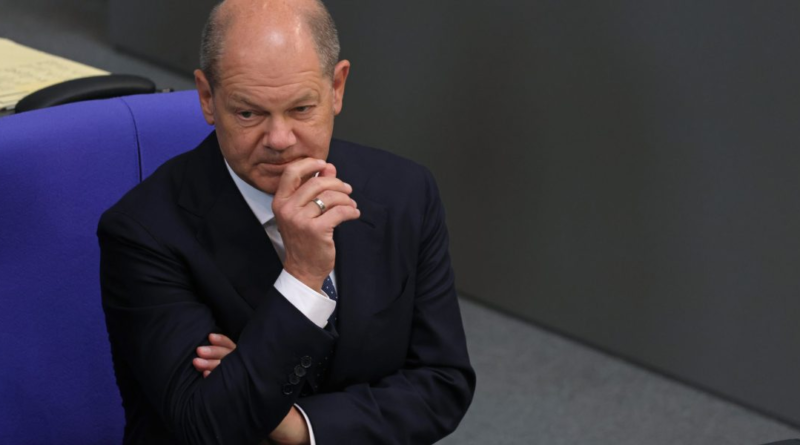Germany wants to strip families making over €150,000 of the benefit that pays them during parental leave
Germany plans to halve the income ceiling at which families stop being eligible for government benefits while taking parental leave, a move which critics say risks backfiring on working women.
Parents with a joint taxable income above €150,000 ($163,190) will no longer receive leave payments, Family Affairs Minister Lisa Paus told German broadcaster n-tv on Tuesday. That’s down from a previous threshold of €300,000, which Chancellor Olaf Scholz on Wednesday described as “very, very high” and therefore worth reconsidering.
Europe’s largest economy currently offers generous support for families — in part to combat its rapidly aging population and encourage fathers to take a more active role in childcare — but is facing drastic budget cuts to reign in deficits that occurred after consecutive crises. The Family Ministry hopes to save some €290 million with the measure.
Paus said the plan is aimed at higher-income households and would exclude 60,000 families from receiving benefits. Economists at the Cologne Institute for Economic Research argued that doesn’t consider couples that might still have children in the future, with about 435,000 couples living in Germany below the age of 50 who earn more than the €150,000 limit, almost 5% of that age group.
“The idea of reducing the parental benefit limit is not fundamentally wrong. However, it is rather low at €150,000 – that’s what two academics can achieve full-time even without top positions,” said Wido Geis-Thöne, an economist at the Cologne-based think tank. “The government should ask itself whether it isn’t overshooting its target.”
Critics say the measure will particularly hurt individuals who earn significantly less than their partners — which is the case for many women in Germany — as it will force them to take on the bulk of childcare responsibilities to avoid straining household finances. It will also hit families in which parents receive more or less similar paychecks that together exceed the new threshold, as it would cut in half their family earnings if one decides to take parental leave.
“For equality, in fact, it’s not a shining example,” the Family Minister said, calling the decision a “bitter pill”. She added she did not want to reduce benefits for those who most need it.
Germany’s parental allowance is paid for up to a year after the birth or adoption of a child and amounts to about 67% of prenatal income — between €300 and €1,800 per month. The payment can be extended to 14 months if the second parent also takes a leave from work for at least two months. Since the introduction of the measure in 2007, it has increased the labor force participation of mothers with children below three years from 43% to 56% in 2019, according to a government report. It has also brought more men into childcare, as applications of fathers for the parental allowance more than doubled to 43% in that time period.
The planned measures still need approval from lawmakers before they can come into force. The ruling coalition signed off on the 2024 budget on Wednesday, with a plan that prioritizes defense while squeezing spending in all other departments.
“It primarily affects well-educated and hard-working young women, who now have to hold out their hand to their husbands again if they don’t want to be catapulted into existential hardship by having a baby,” said Dorothee Bär, vice chairwoman of the CSU conservative opposition’s parliamentary group.

